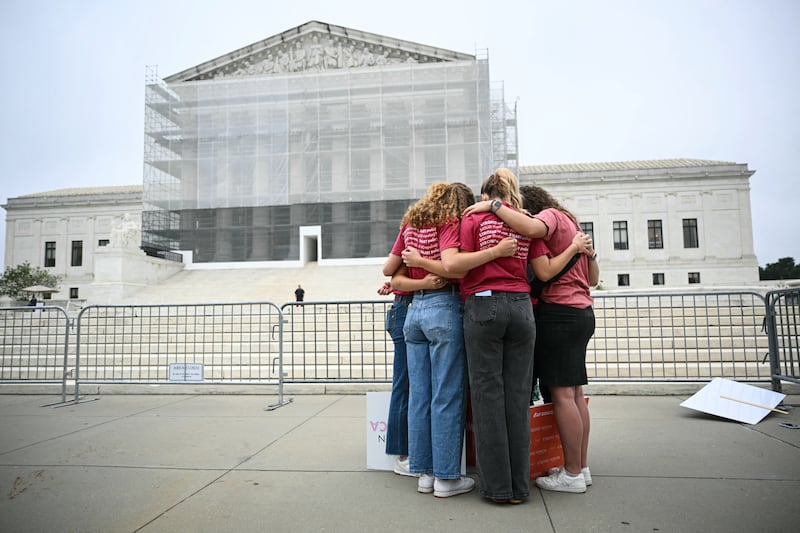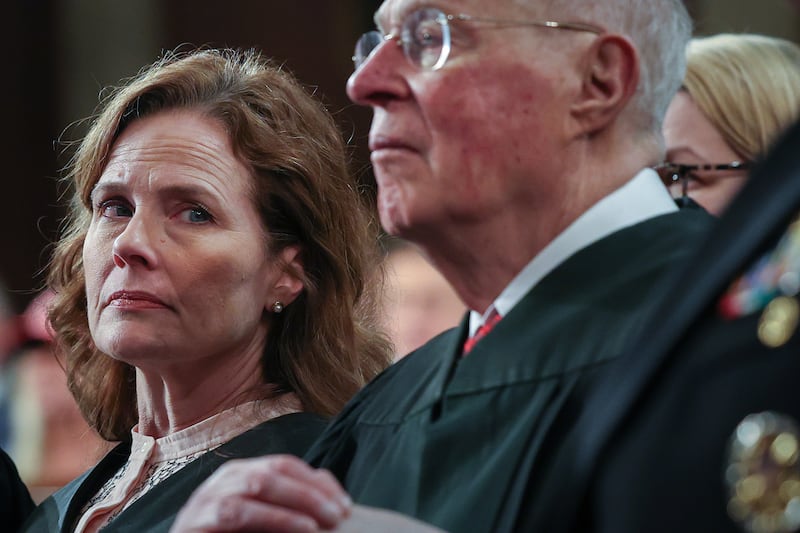Donald Trump was celebrating a decision on Friday by the Supreme Court that will limit legal attempts to block his controversial birthright citizenship proposal.
Although the ruling did not rule on the constitutionality of the plan, the decision, authored by Justice Amy Coney Barrett, is likely to temporarily overhaul the way U.S. citizenship is granted.
It means that a Trump move stopping children of undocumented immigrants from becoming U.S. citizens could go into force in more than half of the country’s states.
The Supreme Court issued a monumental 6-3 decision on Friday to limit lower courts’ power.
The ruling came as the fight over birthright citizenship makes its way through the courts.
Trump signed an executive order to limit birthright citizenship on his first day back in office.
It directed federal agencies to refuse to recognize citizenship for children born in the U.S. who do not have at least one parent who is a citizen or a lawful permanent resident.
The order was immediately challenged in federal court and blocked by the lower courts nationwide.

The Trump administration asked the Supreme Court to limit the scope of such preliminary injunctions, including on birthright citizenship, arguing judges lack the authority to block orders nationwide rather than on the merits of the order itself.
In the decision made on ideological grounds, with a conservative majority, the Supreme Court restricted lower courts’ ability to issue nationwide or universal injunctions to block the president’s executive orders.
It directed three lower courts in Maryland, Massachusetts, and Washington to “move expeditiously” and potentially limit their injunctions against the president’s birthright citizenship orders.
However, Justice Amy Coney Barrett specifically wrote in the majority opinion that the court was not ruling on birthright citizenship and delayed the executive order from going into effect for 30 days.
The decision paves the way for birthright citizenship to be halted in the 28 states that did not challenge the administration’s order.
In her dissent, Justice Sonia Sotomayor raised questions about what an injunction moving forward would look like.
“The majority does note, but takes no position on, two narrower injunctions the Government claims would still give complete relief to the States: an order prohibiting the Government from enforcing the Citizenship Order in respondent States, including as to state residents born elsewhere; or an order directing the Government to treat children covered by the Citizenship Order as eligible for federally funded welfare benefits when those children reside in a respondent State,” she pointed out.

While the decision provides the path for the president to end birthright citizenship in some parts of the country, at least temporarily, the 30-day day delay allows for groups challenging the order to regroup and potentially take action.
“Under the ruling, the birthright citizenship order remains blocked nationwide for at least 30 days,” said the ACLU. “We will use every tool at our disposal to prevent any child from being denied citizenship under this unconstitutional policy.”
With the ability of judges to block executive orders nationwide ended, it raises the possibility that different plaintiffs would have to file numerous lawsuits across multiple states. They could be granted relief in some states, but others could face more conservative judges, including some appointed by Trump in other states.
Attorney General Pam Bondi was quick to note on Friday that many of the injunctions the administration had faced came from Maryland, D.C., Massachusetts, California, and Washington and called it “crazy.”
Legal experts believe one workaround to block illegal orders more broadly moving forward would be class action lawsuits.
During oral arguments before the Supreme Court in May, class action lawsuits were raised multiple times.
Justice Elena Kagan asked Solicitor General D. John Sauer what could be done in response to an illegal executive order. He argued there is a range of tools to address that and specifically mentioned a “nationwide class action.”
It was brought up in the court opinion multiple times, as well as in the dissent.
While the Supreme Court avoided touching the actual question of birthright citizenship on Friday, the Trump administration said it remains confident that its order is constitutional and expects a decision on its merits in October.
What remains less clear is how the Trump administration plans to enforce its order on birthright citizenship ahead of the court deciding on the constitutionality of birthright citizenship overall at a later date.
Faced with a question about it on Friday, Bondi pushed back that focusing on undocumented babies was an enforcement priority.
“This is all pending litigation. That’s going to be decided in October by the Supreme Court,” she responded.
The post Coney Barrett Gives Trump Way to End Birthright Citizenship appeared first on The Daily Beast.




